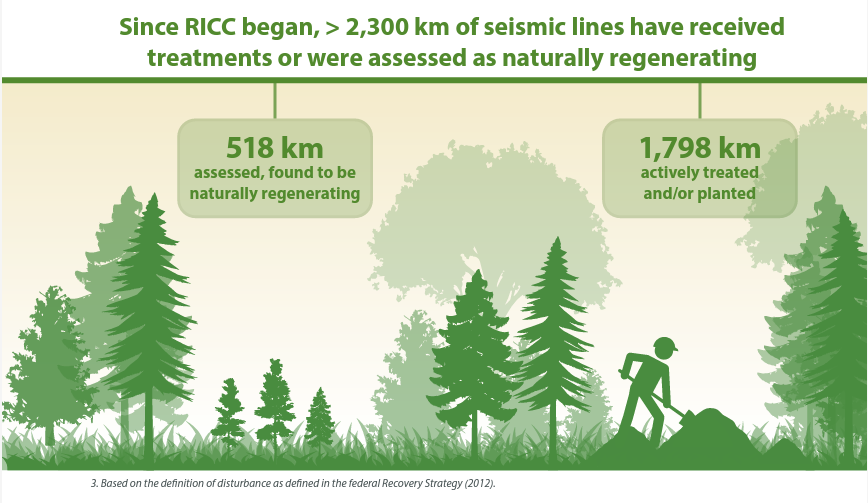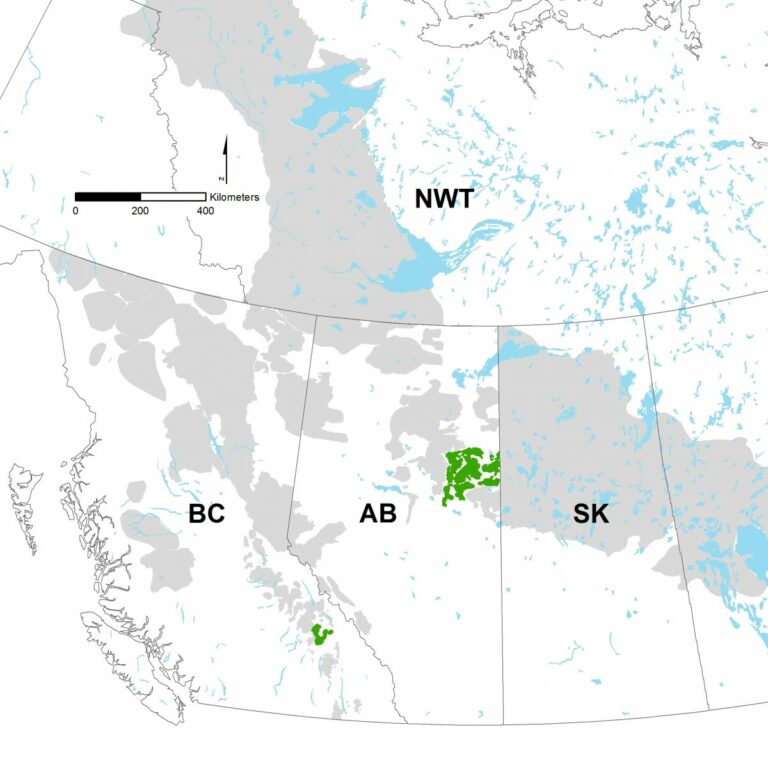Tracking and reclaiming human footprint and linear disturbances is an important part of woodland caribou recovery in Alberta.
The Wildlife Science Centre works closely with the Regional Industry Caribou Collaboration (RICC), who have been working collaboratively to implement restoration treatments on seismic lines. By the end of 2021, RICC members had assessed or implemented restoration treatments on over 2,300 km of legacy seismic lines in the boreal forest. Using silvicultural tools like mounding, coarse woody material placement, and planting seedlings, RICC companies have initiated habitat recovery across an area approximately 1,050 km2 in the Cold Lake caribou range; 545 km2 in the East Side Athabasca River (ESAR) range; and 20 km2 in the West Side Athabasca River range. RICC also has an implementation-ready plan to assess 268 km of linear features in the ESAR range.
Collaborative relationships and coordinated activities, including sharing expertise, costs, and access, were essential to the success of RICC restoration projects.

